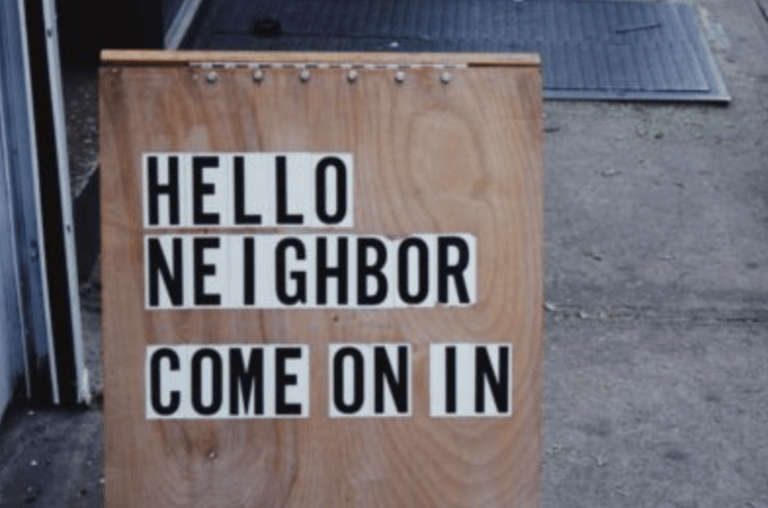by Matt Willingham
A few years ago, Emily noticed something: most of her friends were, well, a lot like her. They looked and thought like her, and they faced problems similar to her own.
“Between parenting and full-time work, my time for friends was just limited,” Emily recalled. She desired different kinds of friendships, with people from differing backgrounds and experiences. Her desire caused her to make some important decisions. “I actually talked to my therapist about it because it was so hard letting go of some friendships, but that was the only way I’d be able to form new kinds of friendships that would help me grow and be challenged—and I needed to prioritize and plan for that.”
Emily began to understand something fundamental to Everyday Peacemaking: the path of least resistance is toward people who look and think and believe and behave like us, but the path of growth is marked by differences and discomfort through uncommon friendships—and that takes work.
“We have a fairly large immigrant population where I live,” Emily continued. “Before this emphasis on ‘uncommon friendships’, I would have said I cared about immigration, but it wasn’t until I befriended immigrants that I realized how little I actually knew and how removed my perspectives were from actual people.”
Emily and her family began to spend more and more time out in the community and at diverse gatherings, and it was at one of these that she met Pablo.
“Pablo and I couldn’t communicate very well at that first meeting, but we definitely connected.” Emily didn’t see Pablo much after that, apart from once when he visited her church, and after eight months she wondered if she’d see him again. “One day, Pablo stopped by my work. It was such a nice surprise, and I found out Pablo and their family didn’t have housing and were seriously struggling. My husband and I talked with the kids, and our family decided to ask them to come live with us.”
At this point, Emily’s tone changed as she shared: “Those five months living together were some of the most beautiful times we’ve ever had. The depth of our love and care for one another was incredible, and we couldn’t even communicate very well! But you can see love in someone’s eyes.”
They celebrated birthdays, shared stories and faith perspectives, grieved loss and hurt together, but, from the way Emily tells it, they especially spent a lot of time laughing.
“I think the glue for us was shared vulnerability. It helped us open up and stay open to one another. As the dominant culture people in all this, humility and vulnerability are especially important. We aren’t the saviors, and we came to see that we needed them in our lives just as much—though differently—as they needed us.”
Today, Pablo and his family live just a few blocks from Emily’s. They have been transformed by these uncommon friendships. They’ve gained new empathy and insights into the struggle of the unhoused, the migrant, the refugee, and they’ve found a kind of hope and healing for themselves, too.
Emily summed it up well: “In the end, all those differences that would have seemed insurmountable—language and cultural barriers, different faiths, and so on—didn’t seem to matter. We loved them more than we cared about the differences, and they’ve become so dear to us.”
Friends, uncommon friendships are the way to transformation and better belonging, but they’re only possible if we are willing to reorient our relationships, our calendars, our very lives toward those on the underside of power. If you ask Emily and many, many others in this community, they’ll tell you it’s worth it.

